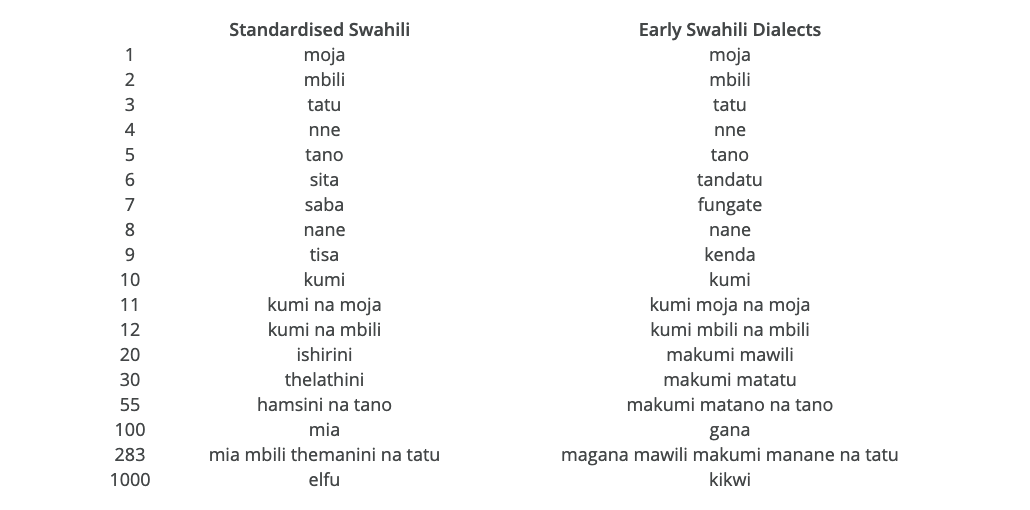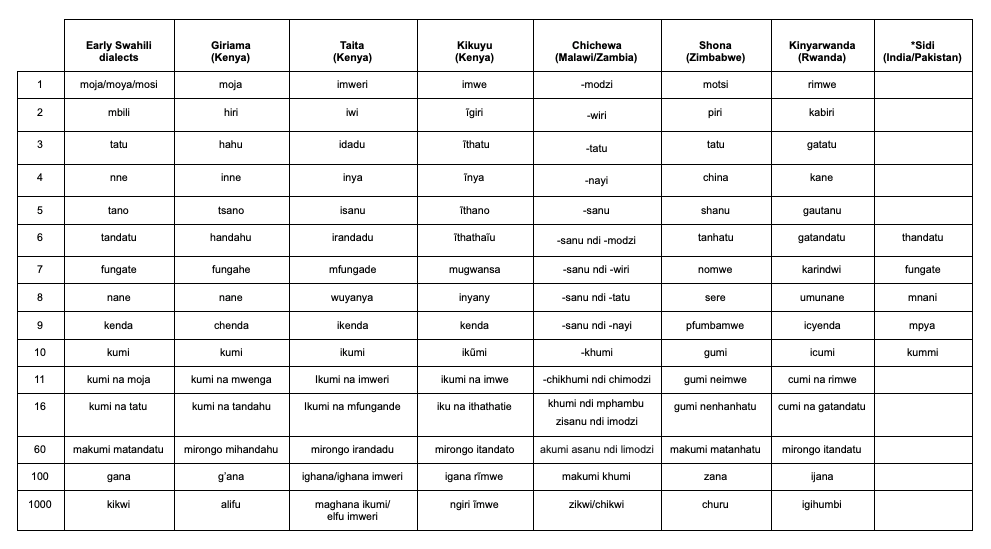Do you know how people counted in Swahili before Arabic numbers were introduced into the language? (Thread)
Before the introduction of Arabic words, numbers like six, seven and nine had different names
Six - Tandatu
Seven - Fungate
Nine - Kenda
Hundred - Gana
Thousand - Kikwi
Six - Tandatu
Seven - Fungate
Nine - Kenda
Hundred - Gana
Thousand - Kikwi
Early Swahili dialects didn’t have specific names for numbers that were multipliers of tens. 1- 10 had specific words and the tens were formed by putting makumi before the multiplier digit eg. Makumi matatu for 30
The numbering rules of early Swahili dialects, and the words used, are similar to other Bantu languages that count in batches of 10.
Note that there are some Bantu languages that count in batches of five e.g the Shona
Note that there are some Bantu languages that count in batches of five e.g the Shona
Over time, the mode of counting in Zanzibar that became common was that of using Arabic numerals for the tens between 20 and 90, so as to simplify counting.
Ishirini, Thelathini, Arobaini, Hamsini, Sitini, Sabini, Themanini & Tisini
Ishirini, Thelathini, Arobaini, Hamsini, Sitini, Sabini, Themanini & Tisini
Upon the standardisation of Swahili using the Unguja dialect from Zanzibar as the base, the Arabic names have now become the norm
Though Arabic words were adopted, Swahili numbering rules were maintained. In Arabic one places the number denoting the ones before the tens e.g. 79 reads as tisa na sabini (Tis’a wa-sab’oun - تسعة وسبعون). In Swahili the ones come after the tens i.e sabini na tisa.
Scholars assume that tandatu (6) and fungate (7) may have been replaced so as to fit better in the pattern of disyllabic words of other Swahili numbers
Te. nda. tu (Swahili) Si. ta (Arabic)
Fu. nga. te (Swahili) Sa. ba (Arabic)
Te. nda. tu (Swahili) Si. ta (Arabic)
Fu. nga. te (Swahili) Sa. ba (Arabic)
Evidence suggests that the number nine was recently adapted as the word kenda is still in use today.
Remember the saying, & #39;Kenda karibu na kumi& #39;?
Remember the saying, & #39;Kenda karibu na kumi& #39;?
Other instances where we see numbers of early Swahili dialects still in use is the case of the word fungate which is used to describe the traditional seven-day honeymoon period in Swahili communities
Read more on the how Swahili numbers have evolved on the Hiistoriya website http://hiistoriya.com/evolution-of-numbers-in-kiswahili">https://hiistoriya.com/evolution...

 Read on Twitter
Read on Twitter



